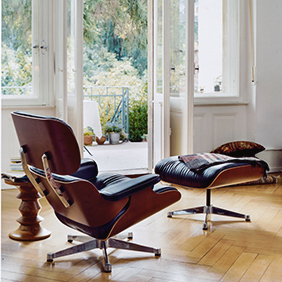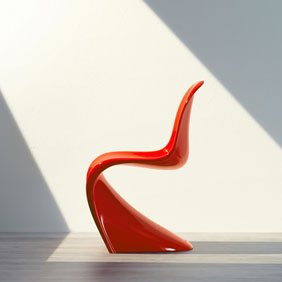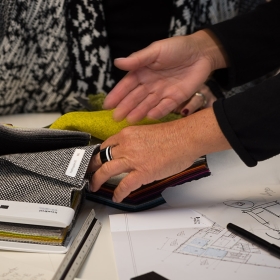Armchairs
The Armchair
In context of furniture the armchair in its diverse forms and wide range of possible uses has become indispensable, even though its story is not that long. Although seating as part of our cultural identity has been important since the days of the Roman empire, the fully upholstered armchair only emerged in Europe in the course of the late middle ages in Europe. Long the preserve of royalty and nobility, upholstered furniture slowly began to move through the ranks of the upper middle class before at the beginning of the 20th century it started to become a much more familiar, if still not universal, sight in homes of all classes and positions. With the economic boom of the 1950s, the rise of mass production and significant technical innovations, post war saw the armchair finally conquer mainstream society.

The Fritz Hansen Ro armchair is one of the newer armchair designs

The Wassily Chair by Marcel Breuer is produced today by Knoll International
It is therefore little wonder that since the beginning of the 20th century designers have increasingly devoted themselves to armchairs and through their designs responded to the, sometimes, rapid changes of their time. Design classics, such as Marcel Breuer's Wassily Chair through Knoll International, the Swan Chair and the Egg Chair by Arne Jacobsen or the objects in the Cassina LC collection thus embody on the one hand design ideas of their age and reflect, very specifically in the case of the bent tubular steel furniture, the technical innovations of their time. And today armchair design remains culturally and socially relevant. Contemporary designs, including, for example, the Fritz Hansen Ro armchair, the Kartell Bubble Club Armchair or the designer furniture by Hay or Norr11 often interpret traditional forms new, and feature innovative materials and manufacturing methods.





















